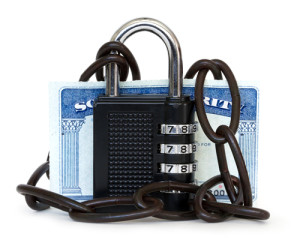Adding ID Theft Protection to Your Homeowners Insurance Policy

Identity theft crime is on the rise, there were more than 11.1 million incidents of identity theft in 2009.
There have been a number of high-profile data breaches this year. Every time another big box store gets hit, consumers look for ways to protect themselves from identity theft. While joining a credit monitoring service is a common solution and a great way to help spot and stop credit fraud quickly, there are other options and one of the least obvious is your homeowners insurance.
Identity theft is when a criminal steals your personal information such as a Social Security number, credit card number or even a medical identification number. They then use this data to commit crimes in your name. It is possible that they will use your name and information to open new credit card accounts and apply for loans, leaving you on the hook for the damages.
Identity theft crime is on the rise, there were more than 11.1 million incidents of identity theft in 2009.
Most insurance companies offer their customers the option to add a rider to their policy that helps cover the cost of identity theft as well as offers assistance to you as a victim. One service that an insurance company would provide if your credit card was stolen and used to make fraudulent charges is contacting the credit card company for you.
They would also work with the three major credit bureaus to clear up any inaccurate information that is showing up on your report due to the fraudulent charges. In addition, the policy could potentially reimburse you for expenses that arise from efforts that are made for reversing the effects of the ID theft.
As an example, it is possible to file a claim for legal or banking fees that come up as you try to correct credit records. It may also be possible to cover lost wages if it is necessary to take time off of work to sort out your credit issues.
Policy Details
A typical identity theft rider costs between $25 and $60 a year. Policy limits vary by policy but in most cases they are between $10,000 and $15,000 according to industry experts. As with all insurance products, details vary by policy so be sure that you read the policy careful and ask questions about anything you do not understand. This is especially important in regards to any exclusions that the policy lists.
Experts recommend paying particular attention to the any limits that are put on fees that can be reimbursed and if there is a preapproval requirement for expenses related to legal work. When comparing ID theft policies be sure that you are comparing apples to apples in regard to coverage levels and any deductible that might apply.
It is important to remember that identity theft policies will not cover any direct monetary losses that are the result of the fraud. In most cases, your credit card company should cover these losses but in the event that they don’t, an ID theft policy will not cover those costs. These policies also do not monitor your credit or help prevent fraud.
How to Prevent ID Theft
The best way to avoid having to make a claim on an identity theft policy is to not become a victim in the first place. Here are a few tips on how to keep your personal information safe:
- Keep your credit cards secure at all times. If you notice a card missing, contact the card issuer immediately. Never carry extra credit cards and keep your social security card and passport in a secure location at home.
- Monitor your credit report on a regular basis. If you notice any unauthorized inquiries, or new credit cards on your report, immediately contact the credit reporting agency. It is possible to pull your credit report for free every year at AnnualCreditReport.com.
- Shred all credit card statements or any other paperwork that has personal financial information on it. Digging through trashcans is a common method that thieves use to get personal financial data.
- Never give out personal information over the phone unless you initiated the call. ID thieves will often pose as banks or government agents, and request personal info over the phone.
